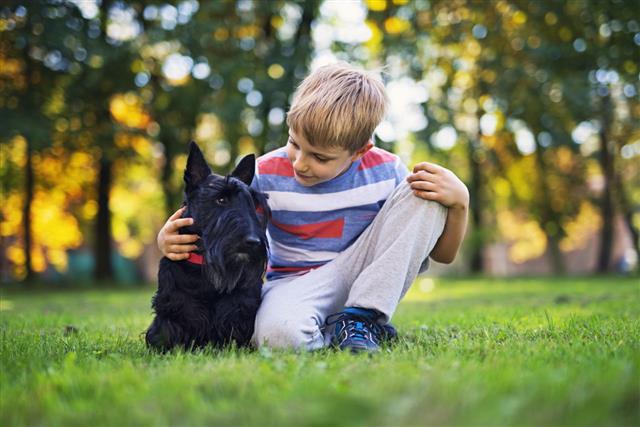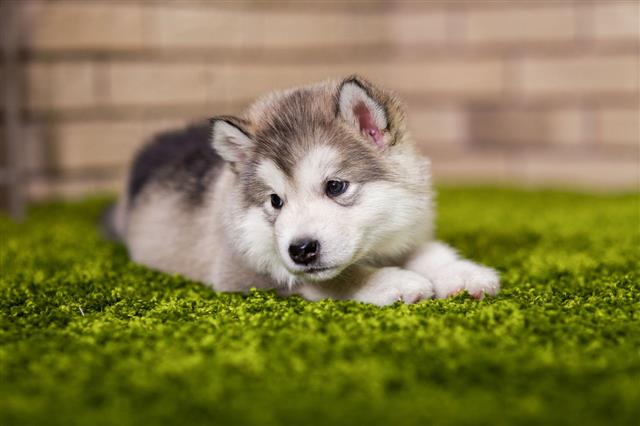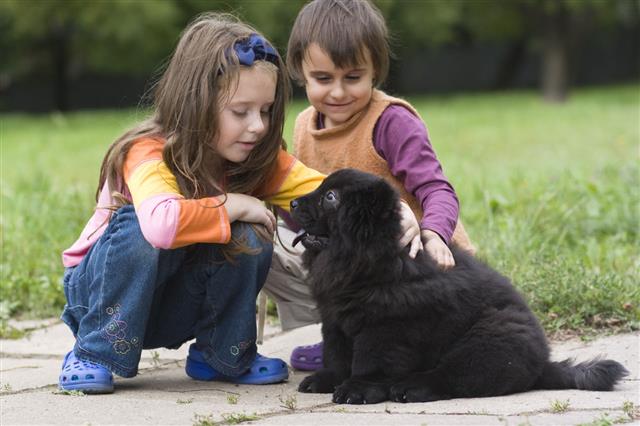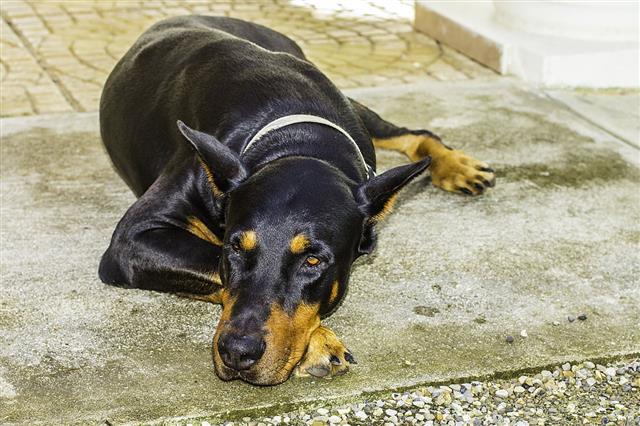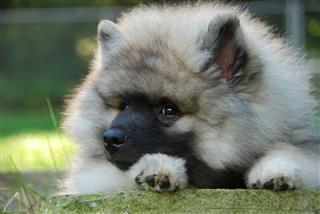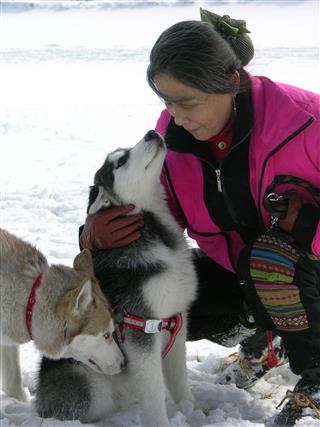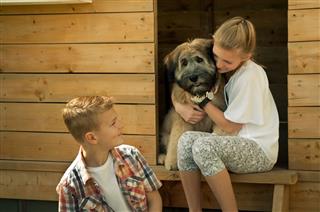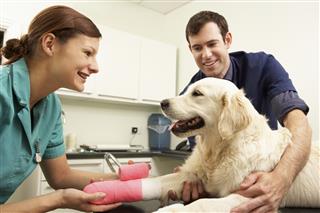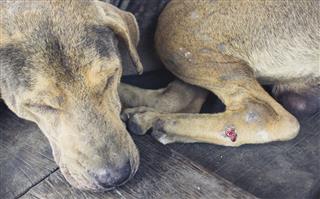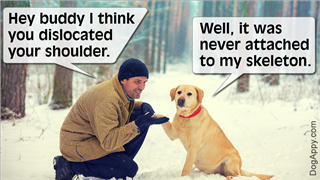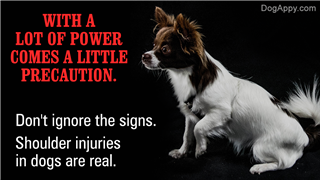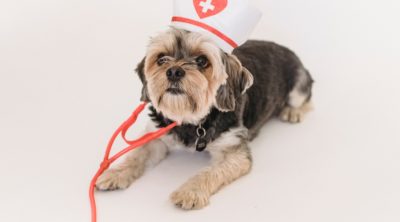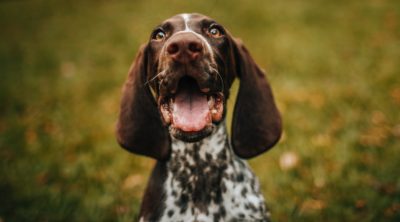
Dogs can easily get their shoulder joint or the adjoining tendons injured due to excessive running or jumping. An injury to the shoulder joint can cause the affected dog to limp, or lift one of the paws continuously while walking. This article will give you a brief idea about why and how dogs can get their shoulder injured, along with the symptoms and treatment of this condition.
Did You Know?
The shoulder blades of dogs are not attached to the skeleton!
Shoulder injuries are quite common in dogs, as they can get quite energetic at times. In dogs and other four-legged animals, the shoulder joint is the place where the scapula or the shoulder blade meets the humerus or the upper bone of the foreleg. The humerus directly fits into the shoulder socket, thereby allowing a dog to stretch its forelegs while running or leaping forward. An injury to the shoulder joint or the adjoining tendons can cause a dog to limp in an attempt to not place pressure on his forelimbs. This can make many pet owners suspect a foreleg injury. But they often forget to take into account that shoulder injuries can also cause limping or lameness in dogs.
More About Shoulder Injuries
Biceps Brachii Tenosynovitis
This is a common shoulder problem that can develop over a period of time. Tenosynovitis is inflammation of the tendons of the biceps brachii muscle and its sheath which is located in front of the shoulder blade. This condition is more common in athletic dogs and medium to large, mature dogs. It is usually caused by repetitive injury to the tendons.
Supraspinatus Tendinopathy
This is another type of shoulder injury, where the supraspinatus tendon gets strained or torn. The tendon can also get inflamed and this may be followed by the formation of calcium deposits, which is known as the mineralization of the supraspinatus tendon. The supraspinatus tendon is responsible for shoulder extension.
Infraspinatus Muscle
This injury is very common in athletic dogs when the dog is not physically warmed up before performing. There is a chance tissue can tear and later limit the extension of the shoulder. The coordination between the infraspinatus muscle and other shoulder muscles is necessary for a smooth movement. The injury is not painful but can leave your dog disabled.
Apart from these, contracture of the infraspinatus muscle, myopathy of the teres minor muscle, carpal injury, supraspinatus avulsion, and medial shoulder instability are some other types of shoulder problems that can affect dogs.
What Causes Shoulder Injuries in Dogs
- Shoulder injuries are usually caused by direct or indirect trauma (such as repetitive strain injury) to the shoulder area. In general, shoulder injuries are caused by the overuse of the muscles that support the shoulder bones. Activities like excessive jumping or running can strain the muscles or tendons of the shoulder joint.
- Sometimes, strenuous activity can also cause an injury to the shoulder joint, which is quite common in previously inactive or lazy dogs. An attempt to do an intense physical activity or exercise all of a sudden can result in muscle and joint sprains. This is particularly true for overweight or obese dogs, as they have to put more pressure on the shoulder joint while jumping or running.
Common Signs and Symptoms
- Though symptoms can differ depending on the nature and extent of the injury, a dog with an injured shoulder usually shows a reluctance to do any activity that puts pressure on the front legs. Such an injury can also compel a dog to limp.
- Lameness associated with a shoulder injury can be mild or severe, and it can exacerbate with exercise and other weight-bearing activities.
- Lameness is subtle and intermittent when the tendons of the biceps brachii muscle become affected.
- An active dog can suddenly hesitate to jump or run due to a shoulder injury. He may lift one of the paws continuously while walking. His steps can also get shortened.
- Apart from these, an injury to the shoulder area can also cause swelling. So, if you observe carefully, your dog’s shoulder may not look even if he has received a shoulder injury.
- if you observe your dog bob his head or move his shoulder frequently this can indicate a shoulder injury.
Diagnosis and Treatment
- Minor injuries generally subside within a few days without treatment. But if the condition does not improve, and the dog exhibits the signs of severe pain, then a veterinarian should be consulted at the earliest. Veterinarians usually take an X-ray of the shoulder to evaluate the condition. MRI and ultrasound will identify the type of injury and detect the presence of calcium deposits.
- A joint tap and arthroscopy can find out the nature and the extent of the injury. These diagnostic tests will help rule out other conditions that can produce similar symptoms. One such condition is ‘osteochondrosis’, which is an orthopedic disease of the joints.
- The treatment of shoulder injuries depends on the extent of the damage. The pain and swelling caused by a mild injury go away within a week or so without any medical intervention. To reduce mild pain, you can apply hot or cold packs to the affected area. Anti-inflammatory drugs may be required to alleviate severe pain and inflammation. In the meantime, restrict your dog from doing any physical activity that can put pressure on the shoulder joint.
- When the injury is severe in nature, and your dog does not respond to non-invasive treatment, your veterinarian may suggest surgery. The rupture of the bicep tendons, as well as their mineralization, may necessitate surgical intervention. To treat an avulsion or fracture of the shoulder muscle-tendon surgery is required.
- Be sure to give your dog enough rest so that the injury can heal completely. Ask your veterinarian what restrictions need to be maintained during the course of treatment and rehab.
How to Detect a Shoulder Injury?
It is important to take any kind of change in your dog’s behavior or appetite seriously. A sudden change or reduction in the level of activity can indicate an injury to the shoulder or other parts of the body. Inappetance can indicate pain.
Shoulder Injuries in Obese Dogs
Keep in mind that an overweight dog is more prone to suffer from shoulder injuries. Therefore, take walks and hikes with your dog. Your dog will love playing engaging and interactive games. Above all, it will improve the relationship with your dog as well as offer mental and physical challenges.
Disclaimer: Always get advice from a veterinarian if your dog displays any of these symptoms. This article only serves to help identify the possible injury.
